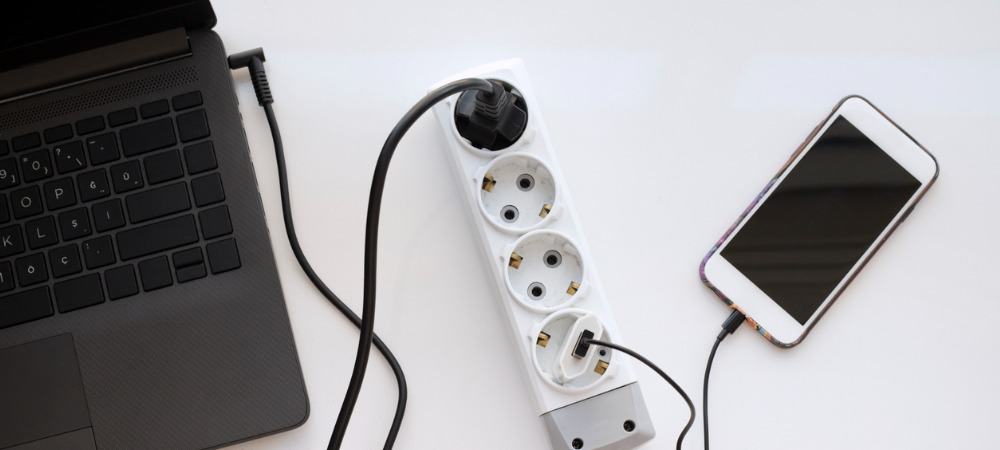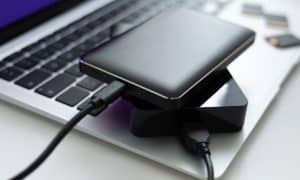The Technology Mistakes Parents Make With College Kids

Sending your child to college is stressful enough, and not considering the technology issues can make it a disaster. Here’s how to make it easy.
Sending your child to college is stressful enough, and not considering the technical issues can make it a disaster. I do computer repair in a college town, so I see it all. A little planning on the parent’s end prevents a bad grade due to the “computer or phone ate my homework.” It’s time for a family conversation about these issues, even if your student is already at school.


Track All Your Serial Numbers, Keep a Copy at Home
Things like laptops, tablets, and phones get lost or stolen all the time at college. The first thing the police will ask for is the serial number of the device so they can track it. The problem is that you, the parent, usually bought the computer, and you have the box and receipt at home. During a crisis, you won’t always be able to track this information down in time.
Before a problem happens, have your student record the serial number of everything of value. Keep a copy of that list at home and keep a copy with your student. I like keeping that stuff in 1Password, but a shared Google doc is excellent. That way, the parent and the student can access it from everywhere.


Along with those basic serial numbers, your student also needs a copy of the serial numbers/activation codes for any third-party programs. An excellent example of this is Microsoft Office. If the hard drive on the computer needs to be replaced, or you replace the whole computer, you’ll need those installer codes. Sometimes you’ll need installers to fix problems.
Keep Copies Of Installer and Recovery Media With The Student
When there’s something wrong with the computer, the solution is sometimes to reinstall the program or even the whole operating system. As I mentioned earlier, this stuff is probably at home with the parents. That’s a big mistake. All that stuff needs to be with the computer. If you haven’t made the recovery media, now is the time to make it. Ideally, keep a copy of the media at home and with the student. If you have to make a choice, keep it with the student, they need it more than you.
Get A Good Case for the Laptop, Phone, or Tablet
College life is all about rushing from place to place as well as the occasional party. That type of existence increases the likelihood of electronics, especially laptops, getting dropped or having something spilled on them. A broken computer can mean the difference between getting a paper in on time and getting knocked down a grade because it’s late. Naked devices look pretty, but four-plus years of college can be put in jeopardy by not having a working computer. Do what you can to protect it. A good carrying case should cradle the device with protection on all sides and have a zip closure. Bags that just snap aren’t enough. Zippers hold the contents in; snaps cause things to fall out. I’ve seen more than one laptop slip out of a buttoned purse pretending to be a laptop bag. If you’re on a budget, I’ve even seen a simple case from Amazon that should do the trick for under $15. Function first, fashion second.
Function first, fashion second.
Setup Off-Site Backup
While I believe everyone should have online backup, it’s a much bigger deal with college students. Students do their work while mobile. They might be at the library for 12 hours if they’re working on research. Nothing ruins a weekend like a laptop left at the library and then stolen. Online backups protect the computer anytime it is on the internet.
If the student uses just an external hard drive, they’re more likely to carry it with them for backup. If the laptop travels with the backup, the backup runs the same risks as the desktop.
Your student might tell you they have everything in Google or the cloud. That data needs to be backed up through Google Takeout or a third-party program. Online accounts can be hacked, so they need to be backed up. They also need to be protected, see the next tip.


Insist on Being Part of The Authentication Process
We’ve already covered two-factor authentication, but this protection becomes more important for a college student. College is all about time-sensitive materials. A hacked account means delays, and delays mean lost grades.
Depending on the service, the parent should have their phone as part of a two-factor strategy. Your student’s phone is probably going to be sitting right next to the laptop. If both are stolen, they’ve lost the ability to get into their accounts. If a service lets you set a recovery email address, set one of those addresses to the parent. If you’re a parent, you know you’re going to be called when the laptop is lost or stolen, so you might as well be prepared.
Get Insurance On The Laptop
Have I mentioned the common problem of laptops getting lost, stolen, or damaged on college campuses? Another way to recover from these mishaps is to talk with your insurance agent. They’ll protect your college student’s laptop while they are away at school under your homeowner’s policy. Talk with the agent about scheduling that laptop and tablet on your insurance. That reduces the deductible and risks of your homeowner’s rate going up. Some agents might also recommend renter’s insurance.


Create a Liquid Emergency Plan
Liquid spills on college laptops are about as common as fake ids. College rooms are small, and everyone needs to drink either adult beverages, coffee, or just plain water. Just a few drops of water can destroy a laptop if it hits the right place. The key to a successful recovery after a spill is to shut down the device immediately. If the battery is removable, make sure your student knows how to remove it. Most Macs and mobile devices don’t have removable batteries, but most PC laptops do. While experts don’t agree on the power of dry rice to wick away moisture, I suggest a box of something around in case of this common emergency. Since the laptop is insured and backed up (see above), the goal is to avoid getting a new computer downtime.
Buy Two Power Adapters (unless it’s a Mac)
When a student’s rushing from class or the library, they’ll leave the power adapter behind. Since PCs don’t have a common standard of adapters, send your student to school with two power adapters. That way, they’ll be able to continue to work while they try to find where they left the adapter. Since Macbooks take the same type of power adapters (and are crazy expensive), the odds are your student can borrow from a friend in a crisis.


It’s Not Too Late
Even if it’s the last day of the semester, these tips are good anytime. They’re designed to solve problems before they happen!
Leave a Reply
Leave a Reply






